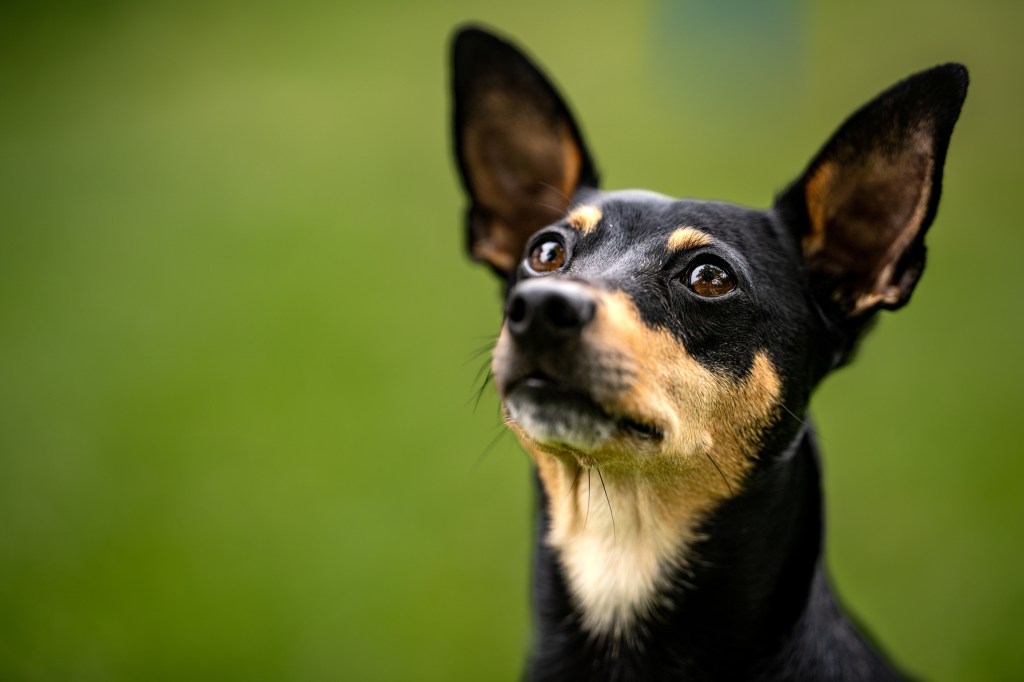
Miniature Pinscher: A Complete Guide
History of the Breed
The Miniature Pinscher, often referred to as the «Min Pin,» is a small but spirited breed with a history that traces back to Germany. Despite its name and resemblance to the larger Doberman Pinscher, the Miniature Pinscher is not a miniature version of the Doberman but rather a distinct breed in its own right. Its origins can be traced to several small terrier breeds in Germany, including the Dachshund and Italian Greyhound.
Bred primarily as a ratting dog, the Miniature Pinscher was highly valued for its ability to hunt and eliminate vermin in homes and stables. Over time, the breed’s popularity spread beyond Germany, and it became known for its lively personality and striking appearance. Today, the Miniature Pinscher is cherished as a loving companion and energetic family pet.
Physical Characteristics
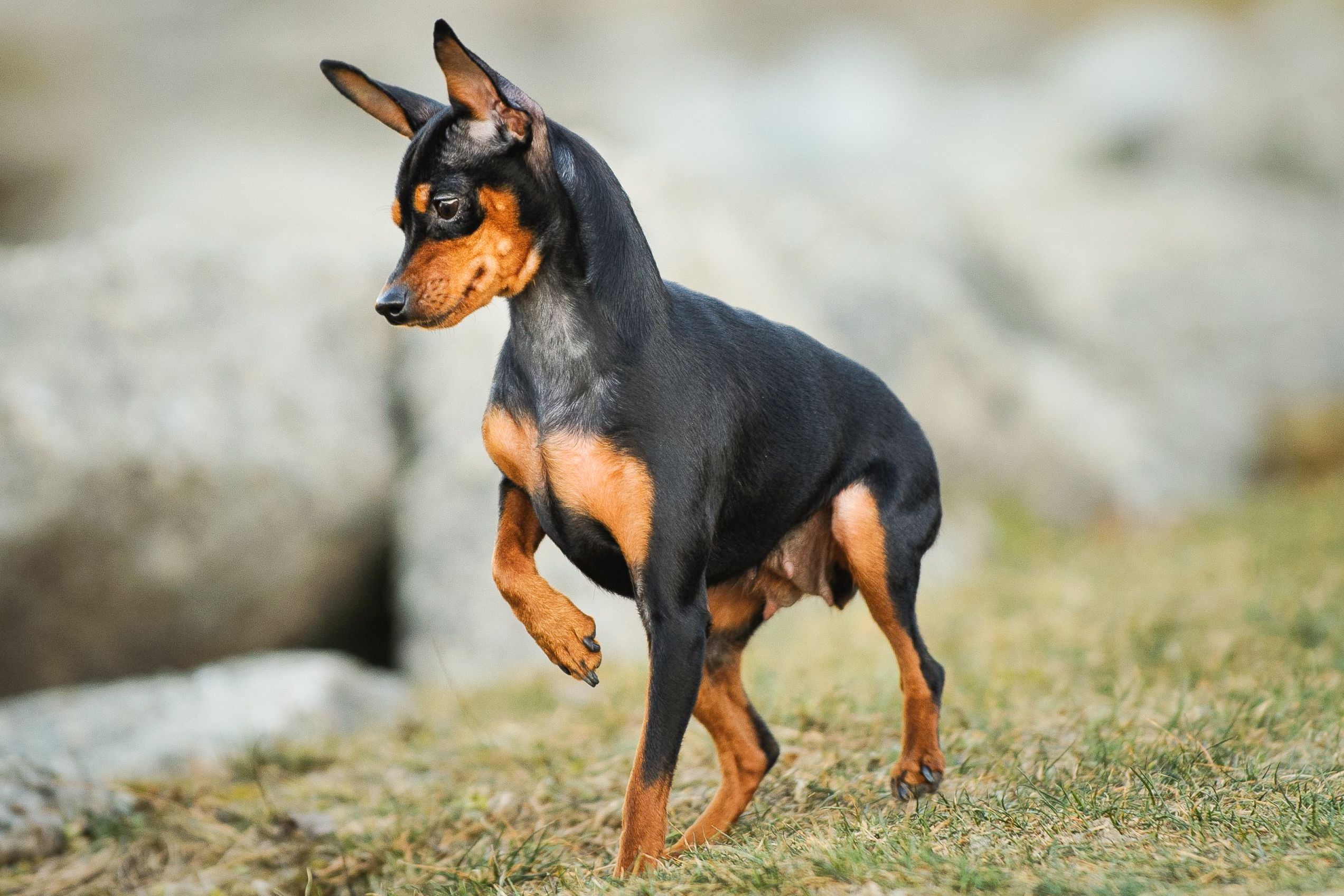
The Miniature Pinscher is a small, compact dog with a sleek and muscular build. It typically stands between 10 to 12.5 inches tall at the shoulder and weighs around 8 to 10 pounds. Despite its small size, the Min Pin is known for its confident and spirited demeanor, often likened to that of a larger breed.
One of the most distinctive features of the Miniature Pinscher is its sleek, smooth coat, which comes in various colors, including black and rust, red, chocolate, and blue. The breed’s ears are naturally erect and set high on the head, giving them an alert and attentive expression. Their tail is typically docked to a short length, although this practice is becoming less common.
Health and Basic Care
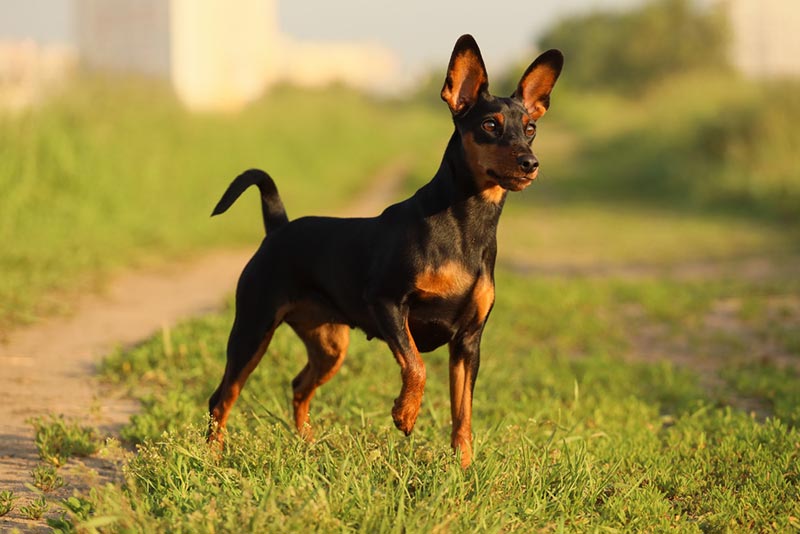
Overall, Miniature Pinschers are a relatively healthy breed with a lifespan of 12 to 14 years. However, like all dog breeds, they may be prone to certain health issues, including patellar luxation, Legg-Calve-Perthes disease, and progressive retinal atrophy. Regular veterinary check-ups, a balanced diet, and plenty of exercise are essential for maintaining their health and well-being.
Their short coat requires minimal grooming, with occasional brushing to remove loose fur and dirt. They are moderate shedders, so regular grooming can help keep shedding under control and reduce the amount of hair around the home. Additionally, their nails should be trimmed regularly to prevent overgrowth and discomfort.
Temperament and Personality
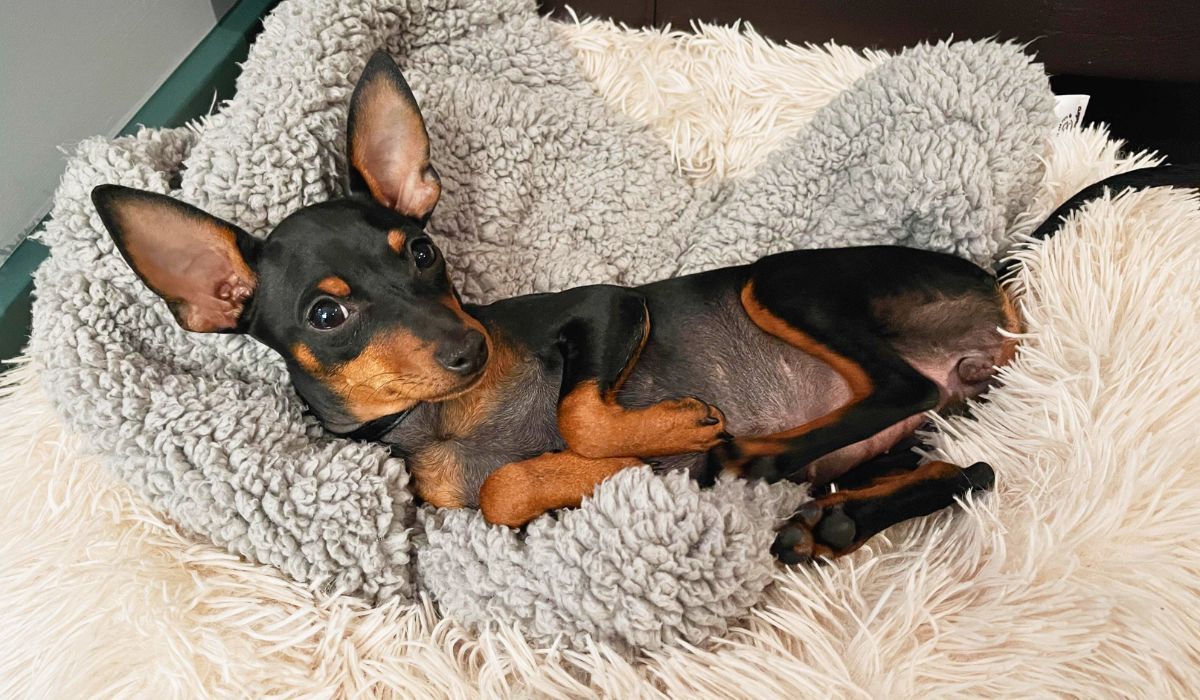
Miniature Pinschers are known for their lively, outgoing, and fearless personality. Despite their small size, they possess a big-dog attitude and are not afraid to assert themselves in any situation. They are intelligent, alert, and highly energetic, making them excellent watchdogs and lively companions.
While Miniature Pinschers are affectionate and loyal to their families, they may be wary of strangers and can be territorial if not properly socialized. Early socialization and obedience training are essential for Miniature Pinschers to help them develop good manners and adaptability. Positive reinforcement techniques work best with this breed, as they respond well to praise and rewards.
Training and Socialization
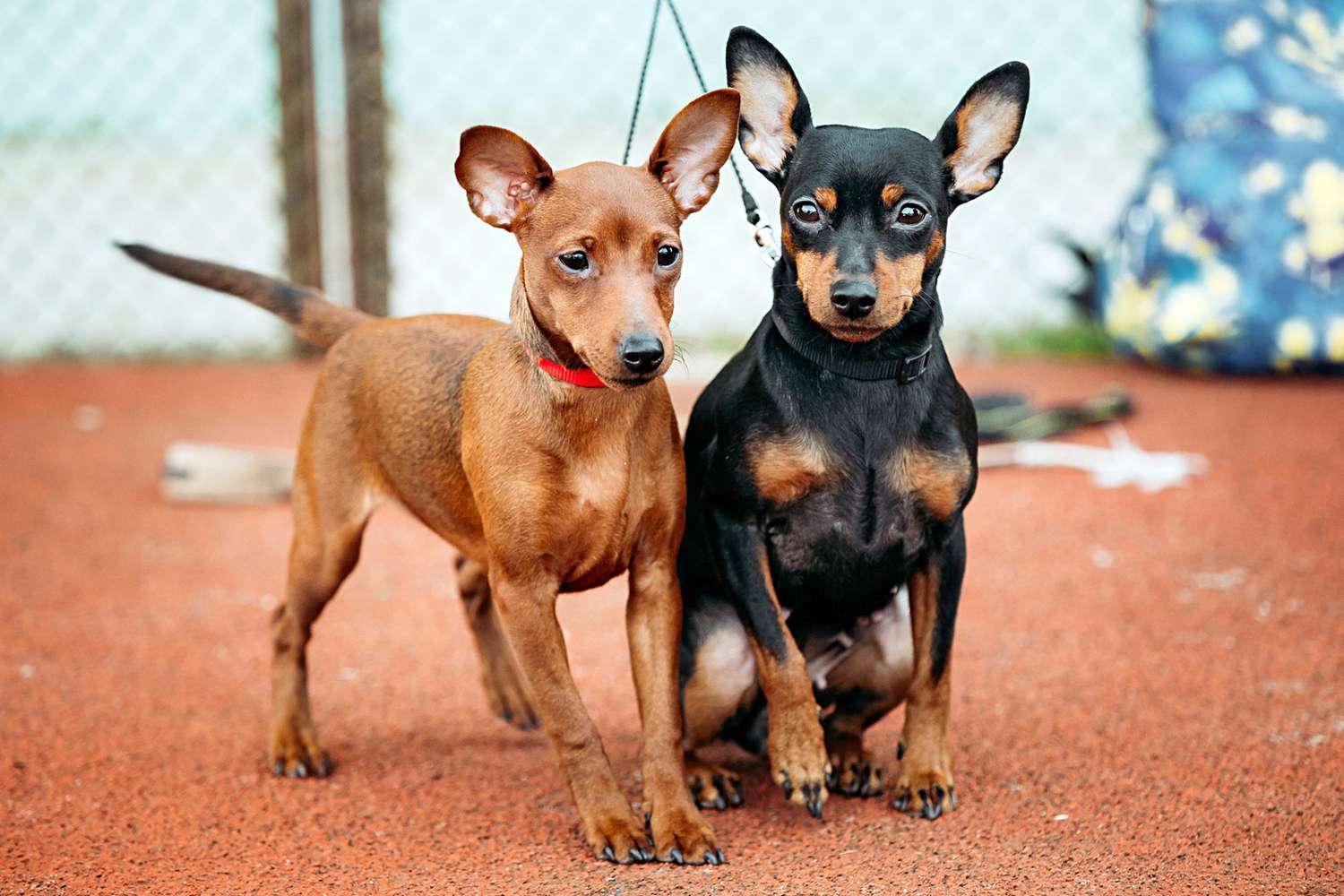
Training a Miniature Pinscher requires patience, consistency, and positive reinforcement techniques. They are intelligent dogs but can be independent and strong-willed, so early socialization and obedience training are essential. Exposing them to different environments, people, and animals from a young age will help prevent fearfulness or aggression later in life.
Miniature Pinschers enjoy mental stimulation and thrive on learning new tricks and tasks. Agility training, obedience classes, and interactive games can help channel their energy in a positive direction and provide opportunities for bonding with their owners. Consistent training and positive reinforcement will help Miniature Pinschers become well-rounded and well-behaved companions.
Nutrition
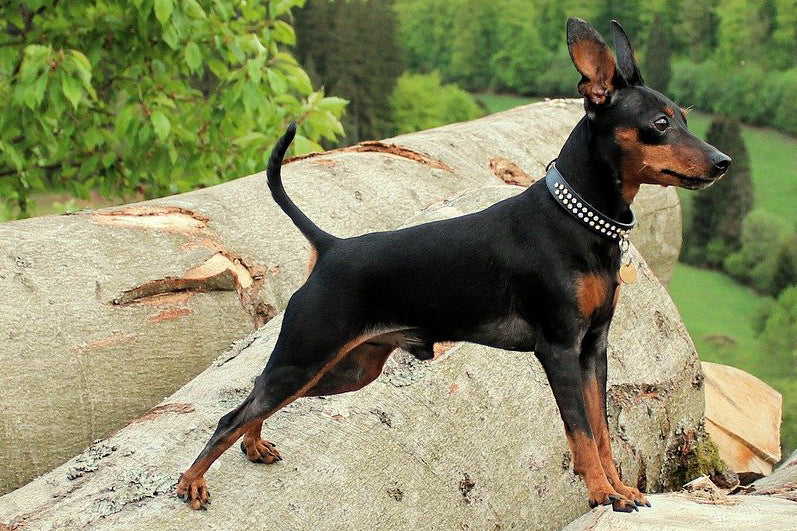
A well-balanced diet is crucial for maintaining the health and vitality of a Miniature Pinscher. Choose a high-quality dog food formulated for small breeds, with a balance of protein, fat, carbohydrates, vitamins, and minerals. Avoid overfeeding and monitor their calorie intake to prevent obesity, as Miniature Pinschers have a tendency to gain weight if not exercised adequately.
It’s essential to provide fresh water at all times to keep your Miniature Pinscher hydrated, especially during periods of exercise or hot weather. Treats can be given in moderation as rewards during training sessions, but avoid feeding table scraps or high-calorie snacks that can contribute to weight gain and nutritional imbalances.
Suitable Environment
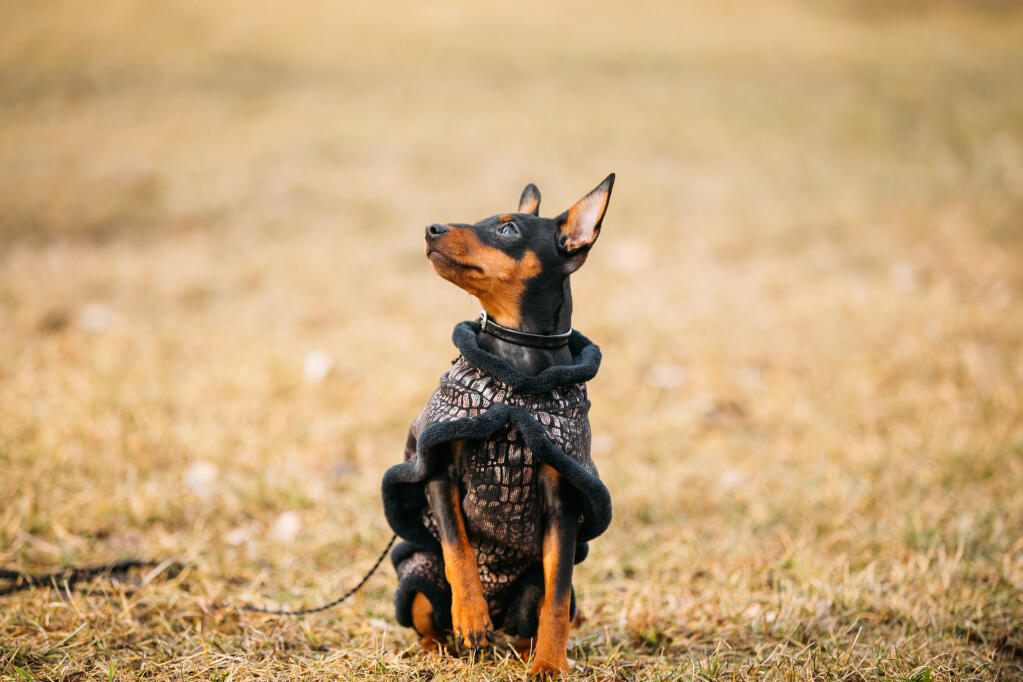
Miniature Pinschers are adaptable dogs that can thrive in various living environments, including apartments, suburban homes, or rural settings. However, they require plenty of exercise and mental stimulation to prevent boredom and destructive behavior. Daily walks, play sessions, and opportunities for off-leash exercise in a fenced yard are essential for meeting their exercise needs.
While they enjoy spending time indoors with their families, Miniature Pinschers also benefit from access to outdoor space where they can run and explore. Secure fencing is essential, as they may have a strong prey drive and a tendency to wander if left unsupervised. Additionally, they should be provided with mental enrichment activities, such as puzzle toys and interactive games, to keep their minds stimulated.
Frequently Asked Questions
Are Miniature Pinschers good with children?
Miniature Pinschers can be excellent family pets when raised with children and properly socialized from a young age. They are playful, affectionate, and enjoy the company of people of all ages. However, as with any dog breed, it’s essential to supervise interactions between Miniature Pinschers and young children to ensure everyone’s safety.
Do Miniature Pinschers bark a lot?
Miniature Pinschers are known for their alert and vocal nature, and they may bark to alert their owners to the presence of strangers or unusual sounds. Early training and socialization can help minimize excessive barking behavior and teach them appropriate
